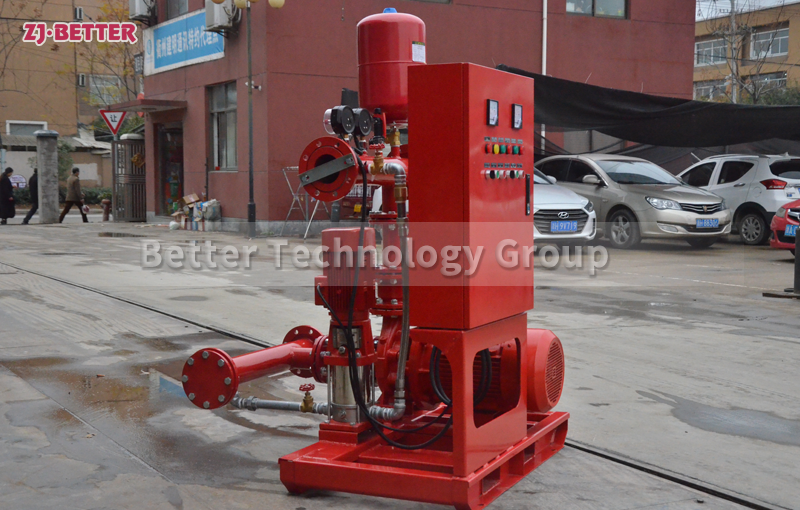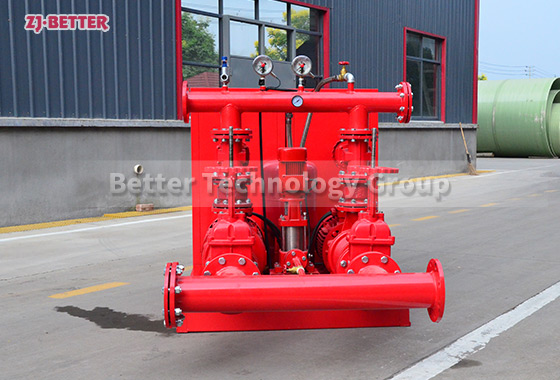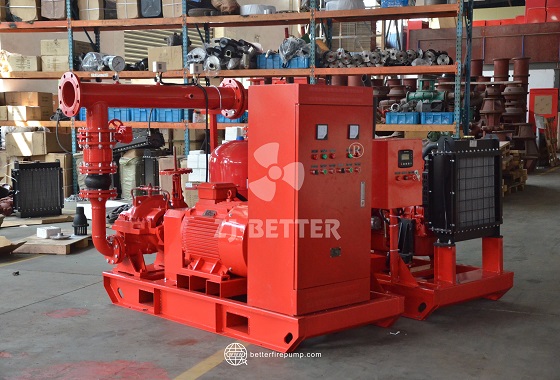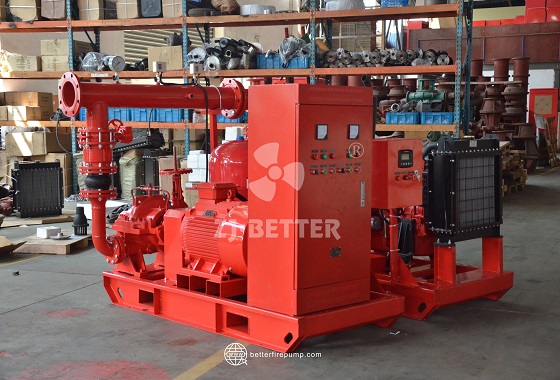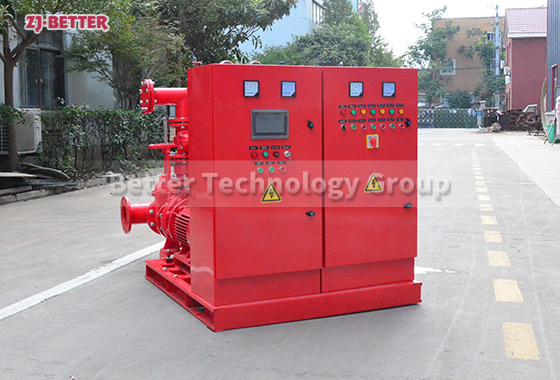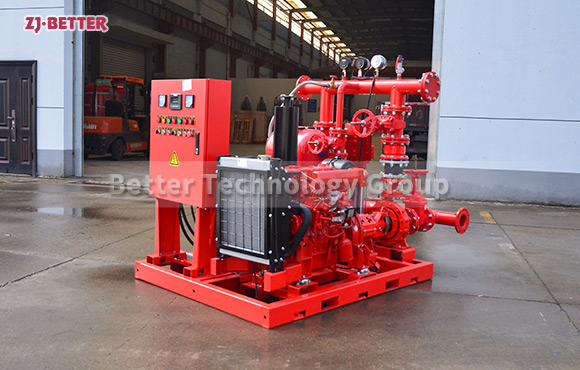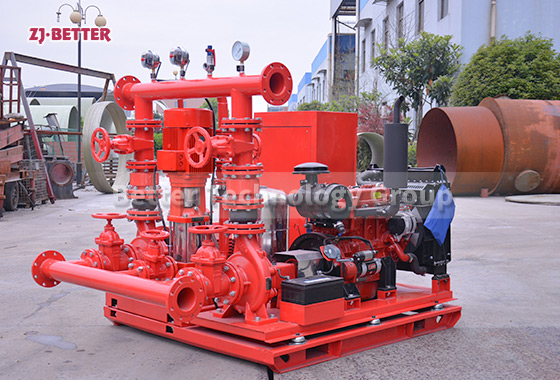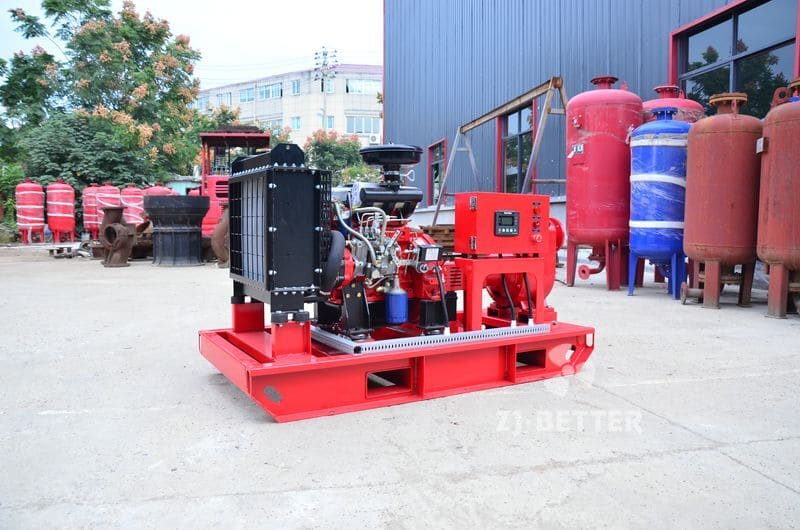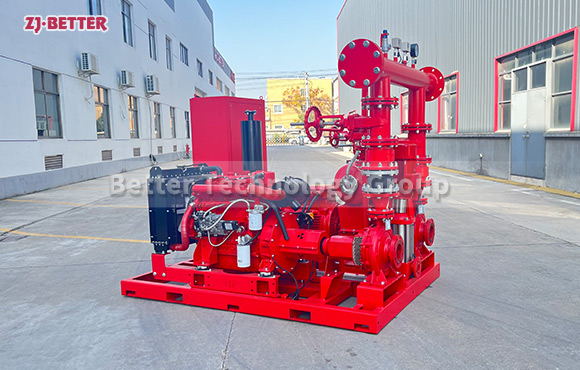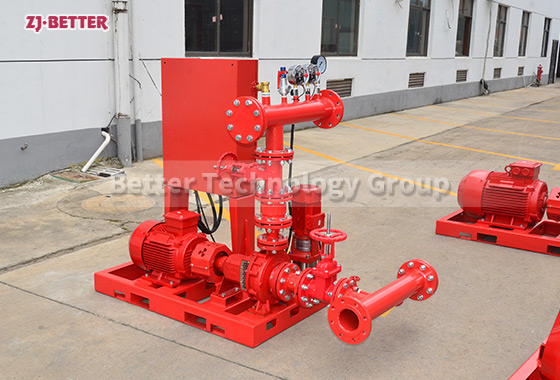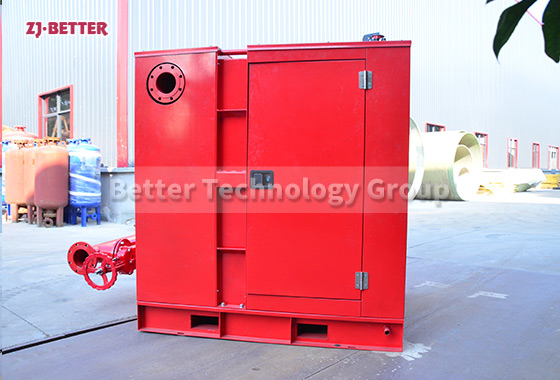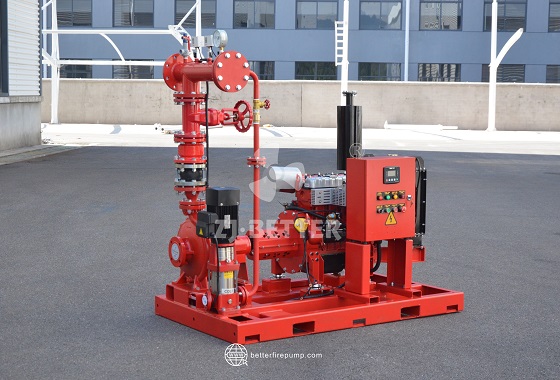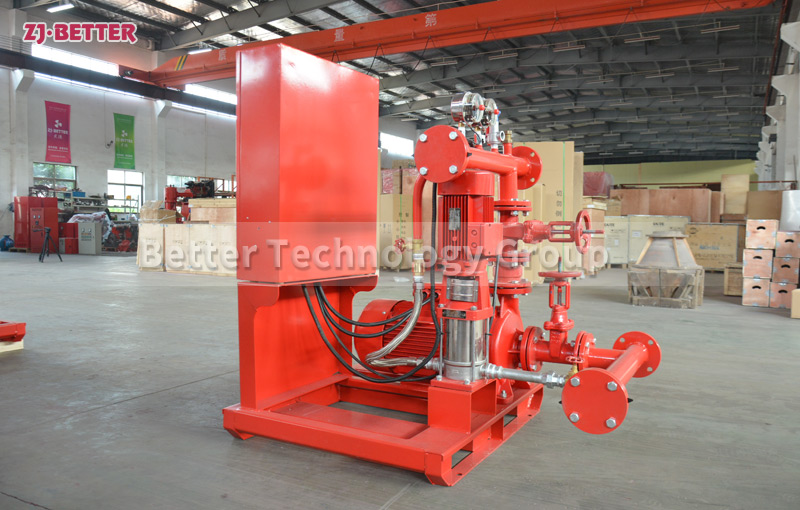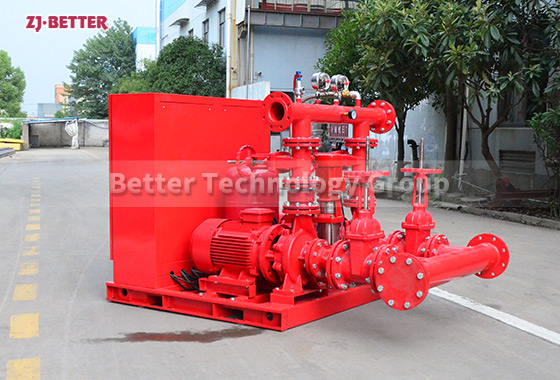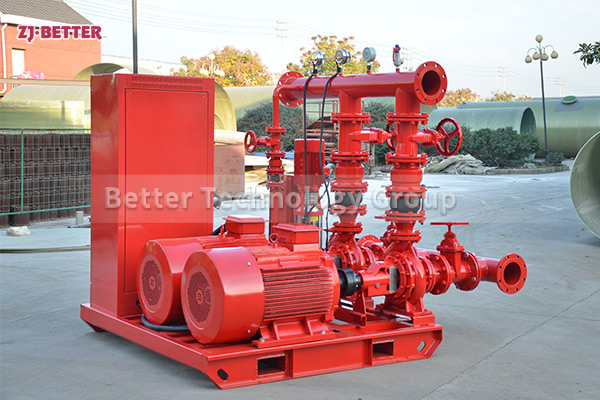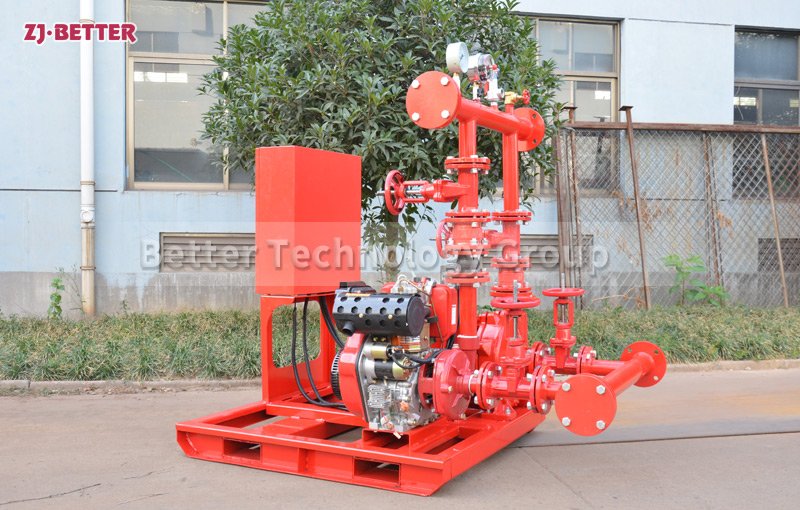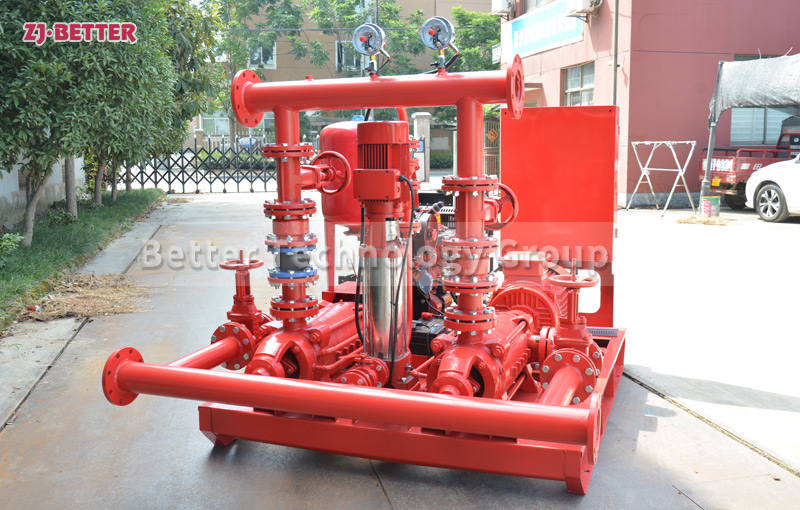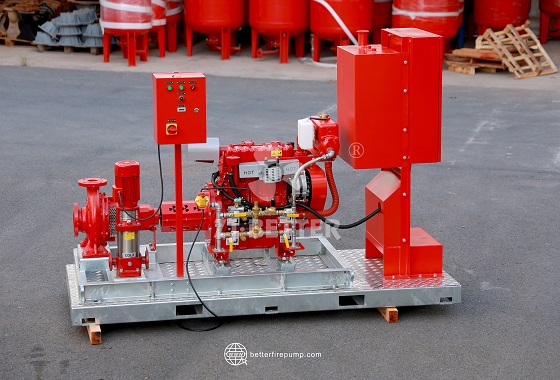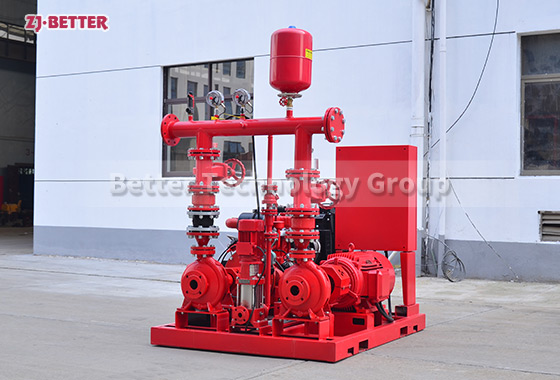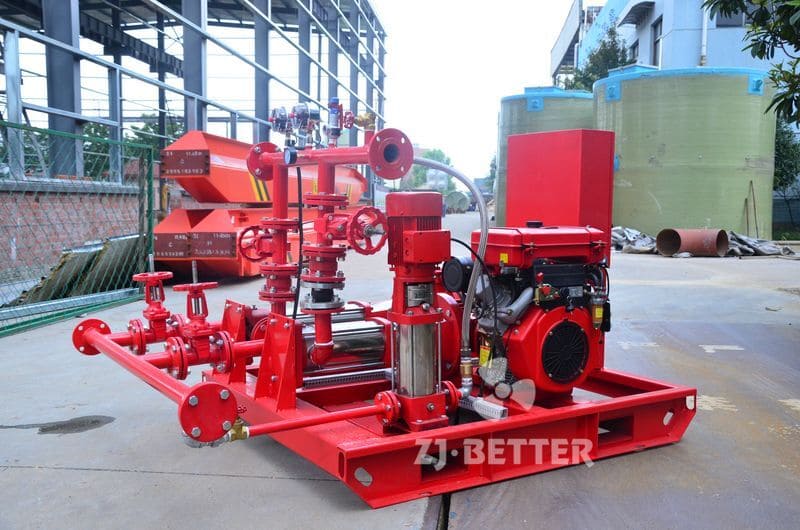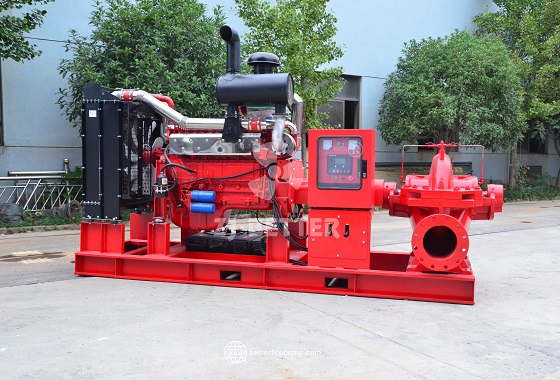EJ fire pump is composed of electric pump and regulated pump
Fire pump refers to a clean water pump used for fire water supply, and a single water pump with a treatment medium temperature lower than 80 degrees and non-corrosive. The pump unit is a joint operation of multiple fire pumps to ensure the quantity and stability of water supply. The electric motor fire pump set adopts multiple fire water pumps powered by electric motors.
There are many types of electric motor fire pump sets, including long-axis fire pumps, vertical single-stage or multi-stage fire pumps, horizontal fire pumps, etc., and the installation environment and performance requirements (boosting/stabilizing, etc.) are selected as the basis. Fire pumps occupy an important position in both life and production, requiring more but stable performance. As long as you choose a suitable fire pump manufacturer to ensure the quality of the pump and the correct selection of the pump, there will be fewer troubles for daily use. There are two kinds of sealing forms for electric motor fire pump sets: packing seal and mechanical seal. Different forms can be used in different environments. The manufacturing difficulty and material selection lead to different prices. For most users, the suitable fire pump selection material is very good. High-quality equipment does not need to exceed the requirements of good materials and oversized models, otherwise it will easily cause many failures and difficult maintenance.

